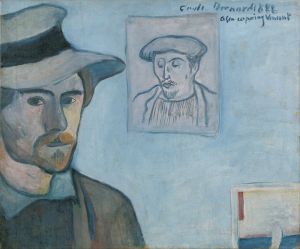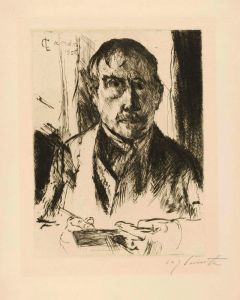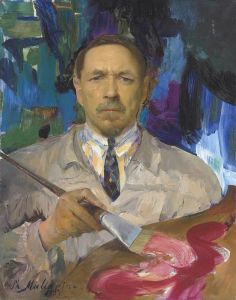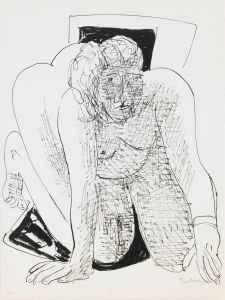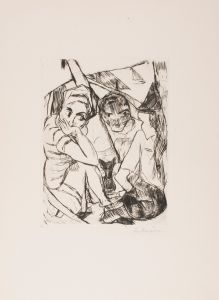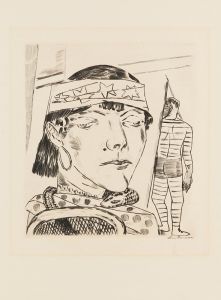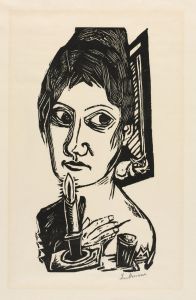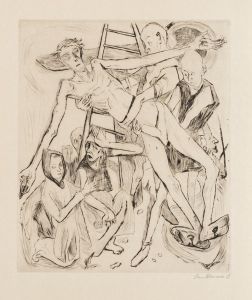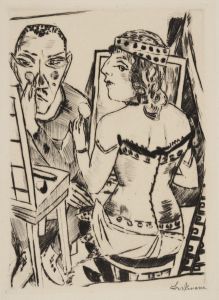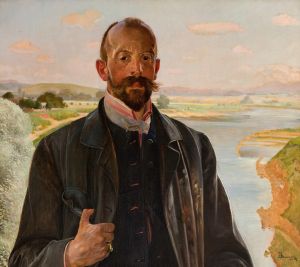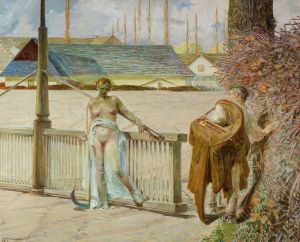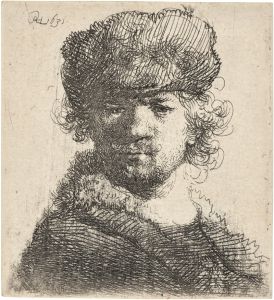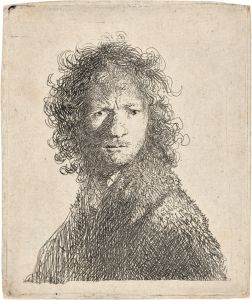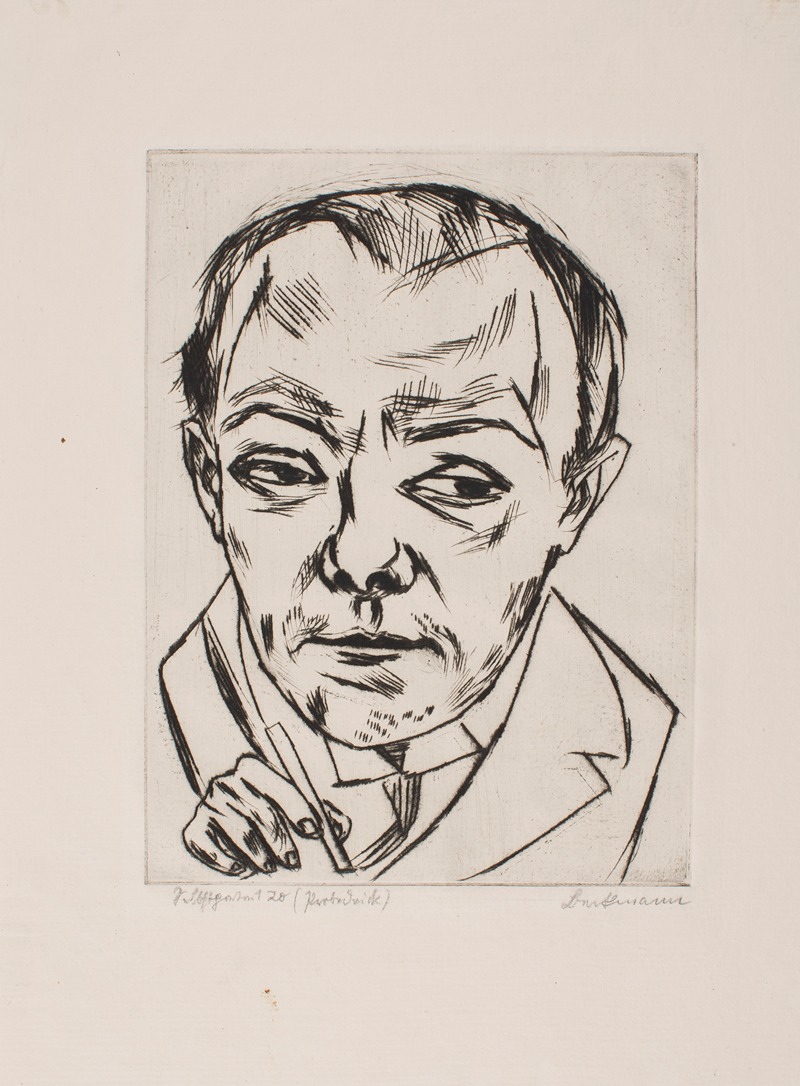
Self-Portrait
A hand-painted replica of Max Beckmann’s masterpiece Self-Portrait, meticulously crafted by professional artists to capture the true essence of the original. Each piece is created with museum-quality canvas and rare mineral pigments, carefully painted by experienced artists with delicate brushstrokes and rich, layered colors to perfectly recreate the texture of the original artwork. Unlike machine-printed reproductions, this hand-painted version brings the painting to life, infused with the artist’s emotions and skill in every stroke. Whether for personal collection or home decoration, it instantly elevates the artistic atmosphere of any space.
Max Beckmann's "Self-Portrait" is one of the numerous self-portraits created by the German painter, who is widely regarded as one of the most important artists of the 20th century. Beckmann, known for his distinctive style that blends elements of Expressionism and New Objectivity, frequently used self-portraiture as a means of introspection and commentary on his personal and societal experiences.
Beckmann painted several self-portraits throughout his career, each reflecting different phases of his life and artistic evolution. His self-portraits often convey a sense of psychological depth and intensity, capturing his complex personality and the turbulent times in which he lived. These works are notable for their bold use of color, strong lines, and dramatic compositions.
One of Beckmann's most famous self-portraits is "Self-Portrait in Tuxedo" (1927), which exemplifies his mature style. In this painting, Beckmann presents himself as a confident and enigmatic figure, dressed formally in a tuxedo. The work reflects his self-awareness as an artist and his engagement with themes of identity and self-representation. The stark contrast between light and shadow, as well as the precise yet expressive brushwork, highlights Beckmann's technical mastery and his ability to convey emotional complexity.
Beckmann's self-portraits are often interpreted as responses to the social and political upheavals of his time, including the aftermath of World War I, the rise of Nazism, and his eventual exile from Germany. His works frequently explore themes of alienation, resilience, and the human condition, making them deeply resonant and thought-provoking.
While specific details about individual self-portraits may vary, Beckmann's body of work as a whole demonstrates his commitment to exploring the human experience through art. His self-portraits remain significant not only for their artistic merit but also for their insight into the life and mind of one of modern art's most compelling figures.
If you are referring to a specific self-portrait by Beckmann, additional details about the painting's creation, medium, and current location would be necessary to provide a more focused description.





